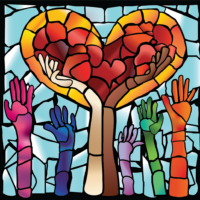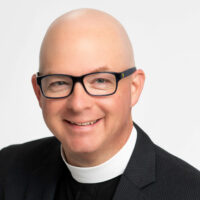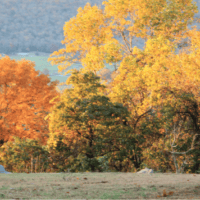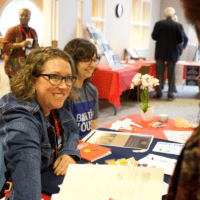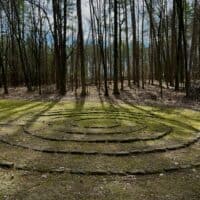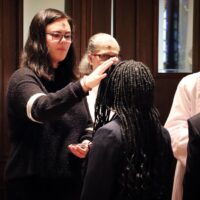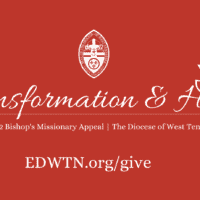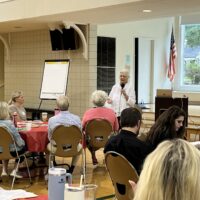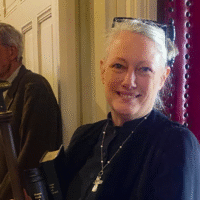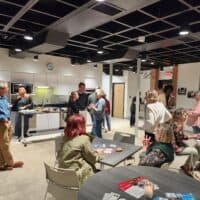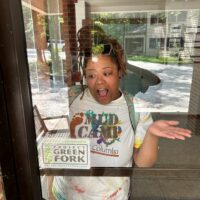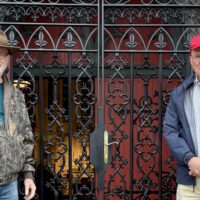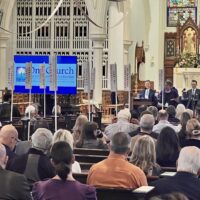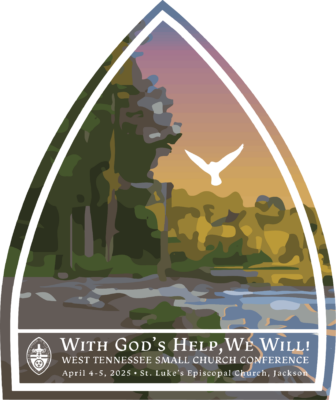 The first Small Church Conference of the Diocese of West Tennessee was held on April 4 – 5, 2025 at St. Luke’s Episcopal Church in Jackson, Tennessee. There were 16 churches represented, with 45 parishioners and clergy in attendance.
The first Small Church Conference of the Diocese of West Tennessee was held on April 4 – 5, 2025 at St. Luke’s Episcopal Church in Jackson, Tennessee. There were 16 churches represented, with 45 parishioners and clergy in attendance.
As I reflect on our time together, I am taken back to the beginning when conversations about our small churches took place at a Diocesan Leadership Retreat held at the Barth House on April 13, 2024. We had the survey data from the Diocesan Vitality Initiative and we knew that our small churches were hurting, some facing significant challenges.
It was at this retreat that the concept of having a Small Church Conference formed.
Shortly after the retreat, a team was put in place to do the work of planning the conference. It was during this work I discovered that though we (small churches) were all so different (demographically, geographically, infrastructure), we all faced the same issues.
Being new to diocesan-level church work – I was elected to Bishop and Council in November of 2023 – I knew very little about the churches that make up the Diocese of West Tennessee. The survey results helped me see that we, Grace Episcopal Church in Paris, Tennessee, my home parish, were not an anomaly.
Our struggles were the norm.
I found comfort in this and was excited when I was asked to serve on the planning team for the conference. I found the other members of the team have this same passion for their churches as did I for Grace.
By the end of October, the team had solidified a theme – “With God’s Help, We Will!” – and a graphic. The theme emerged from my own experience with recent confirmations in the church. At confirmation, the people repeat our baptismal covenant, proclaiming to continue in the apostles’ teachings, resist evil, proclaim the Good News of God in Christ by word and example, seek and serve Christ in all persons, love our neighbor as ourselves, and strive for justice and peace among all people. But remember how we say we will do all these things … “I will, with God’s help.” And so, it was in the very beginning stages of the planning, the team sought the Holy Spirit for guidance and wisdom. This baptismal promise helped shape the rest of our work.
After the theme was in place, Bishop Phoebe set off on her sabbatical and charged the team with the task of planning the conference. With the help Stacey Williams-Duncan, CEO and Founder of Learning Forte, the conference agenda began to unfold. I vividly remember Stacey asking us to share with the group our churches’ “kryptonite” as well as their “super power.” This is when I learned that we all truly had similar strengths and weaknesses; though we may not all be in the same boat, we were all in the same storm. We were also asked what we wanted each conference attendee to walk away having gained from the conference. First, the team agreed that this was not a “one-and-done” conference, but rather the beginning of a movement within the churches. We came to the consensus that we wanted all participants to walk away having been “Enlightened, Encouraged and Empowered.”
The day of the conference came quickly, and it began with the viewing of a TED Talk featuring Derek Sivers’ “How to Start a Movement.” Sivers tells his viewers that a leader needs to have the guts to stand out and be ridiculous. He goes on to stress that it is not the actions of the first person that actually start the movement but rather those of his first follower. You see, once the first follower joins it is no longer about the actions of “one” but of “them” making it easier for others to join and, thus, quickly a movement begins.
According to Tod Bolsinger in How Not to Waste a Crisis, Quit Trying Harder (2024), “we need to lead by not trying to be the superhero who saves the day with our old solutions, but the leader who teaches people to explore the unknown with new questions”. This concept is what started day two of the conference.
The three objectives for the conference were…
To enlighten
Participants recognize the strengths and resilience of their congregation within the broader diocesan context;
To encourage
Discover and affirm their spiritual gifts for leadership and mission; and
To empower
Begin envisioning how their congregation can actively shape its future through ministry.
(LEFT) Ashley Smith, a parishioner at St. Mary’s Cathedral, shares insights during a group report-out at the Diocese of West Tennessee’s first-ever Small Church Conference. Held April 4–5, 2025, the conference aimed to enlighten, encourage, and empower small church leaders across the diocese. “We didn’t leave with a bold vision or concrete plan,” Easley wrote, “but we did leave with a changed mindset as participants of a movement.” (RIGHT) Emmanuel Memphis parishioner Nedra Bailey contributes to a small group discussion during Workshop Two at the Small Church Conference. Each group explored one of eight emerging challenges—including vitality, outreach, and reputation—and brainstormed how to turn those challenges into opportunities for growth. “Though we may not all be in the same boat, we are all in the same storm,” wrote planning team member Patty Easley.
Workshop One was centered around what’s good in our diocese with participants charged with telling their churches’ stories of resilience from the past. It was during this activity I began to see a shift of mindset. In Tempered Resilience: How Leaders are Formed in the Crucible of Change, Bolsinger writes, “A teachable learning mindset leads to a greater capacity for staying in a difficult position, taking on a particularly difficult task or standing up to resistance, because there is an inherent assurance that if all else fails this trial will – if nothing else – lead to further growth.”
I first learned about the concept of a growth mindset from the work of psychologist Carol Dweck. People with a growth mindset embrace challenges, viewing them as opportunities to learn and improve. They’re more likely to persist in the face of obstacles rather than giving up. During Workshop One, participants began to shift their mindset toward the possibility of change and growth by sharing stories of resilience and highlighting the good work happening across our diocese—such as the initiatives supported by the Do Good and Share Grants.
With Workshop Two came the task of delving into what is hard in the story of our diocese. This involved group activities led by Canon Rob Courtney and the Rev. Noah Campbell. Each group was given one of the eight emerging themes from the Small Church Consultation Project: Relationships, Demographics, Vitality, Outreach, Formation, Durability, Reputation and Information Technology. They were tasked with seeking possible solutions.
I was amazed with how many creative ways these diverse groups discovered to turn challenges into opportunities. You see, we did not intend for the participants to walk away with concrete strategic plans or goals, but rather questions and experiments.
Bolsinger writes that “a truly visionary leader brings the whole people together to look not to a wishful future, but to look to God who makes us fit for the challenge”. He goes onto to say that there is no clear way ahead, but we must be curious questioners and find our way together. That is exactly what was happening during Workshop Two.
After a tornado warning and sheltering in place for approximately 45 minutes of Spirit filled singing led by Bishop Phoebe, who reminded us that “to sing is to pray twice,” we were forced to condense the third workshop. The Rev. Sarah Cowan gave the group an overview of The Cure of Souls in Parish Ministry and asked the questions:
1. What do we think we know?
2. How do we identify what we don’t know?
3. How do we connect strengths to needs?
Due to the inclement weather, we weren’t able to answer these questions together, but the attendees were assigned the task of working towards these answers within their churches. The participants likely left the conference with more questions than answers, which is not a bad thing. We didn’t leave with a bold vision or concrete plan, but we did leave with a changed mindset as participants of a movement. We left with a sense of purpose and a sense of belonging. We left with new friendships and prayer partners. We all left feeling enlightened, knowing that we are all in the same storm, encouraged that we don’t have to weather it alone, and empowered to continue to ask questions and seek solutions even if they are a little different than what we’ve done in the past.
I look forward to the continued workshops via Zoom in the coming months that will let us do a deep dive into Tod Bolsingers’ concepts on Leadership in a Disrupted World. I feel if we, as a diocese, listen to the voice of our inner Creator, the still small voice that says “With God’s Help, We Will”, our churches will not only survive, but thrive! By listening to the Creator voice, we can nurture a growth mindset: one that allows us take ownership, roll up our sleeves, and go to work in order to elicit change.
I hope that you, too, are now Enlightened, Encouraged and Empowered to be the change you wish to see in our diocese.
